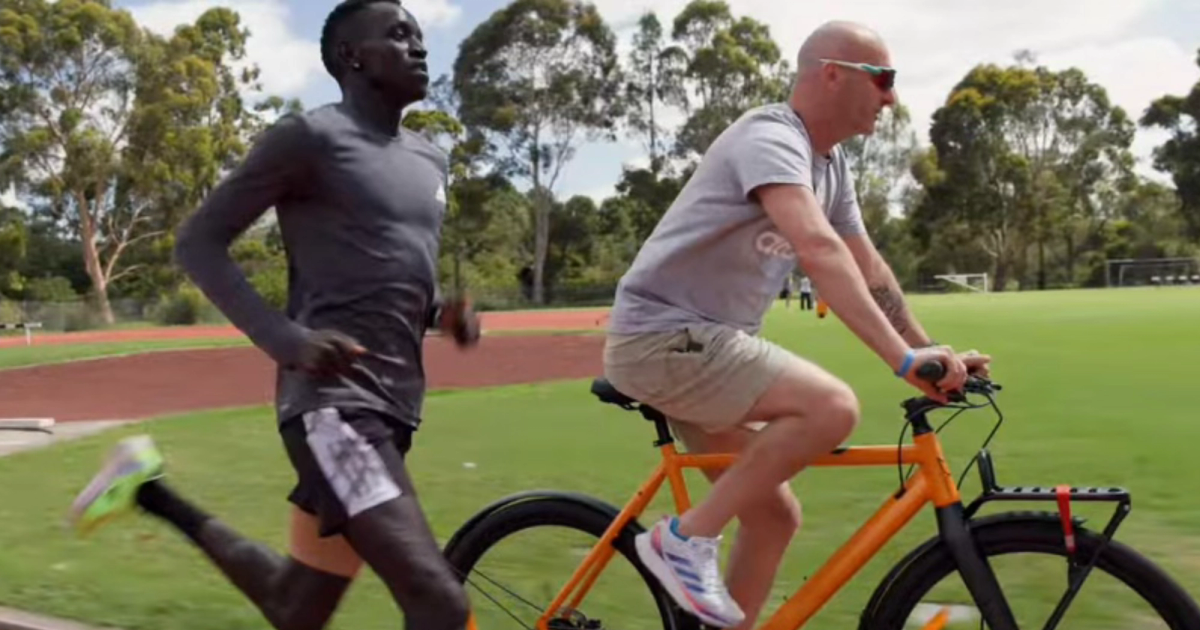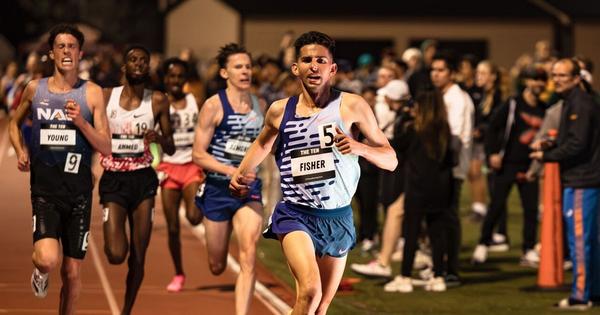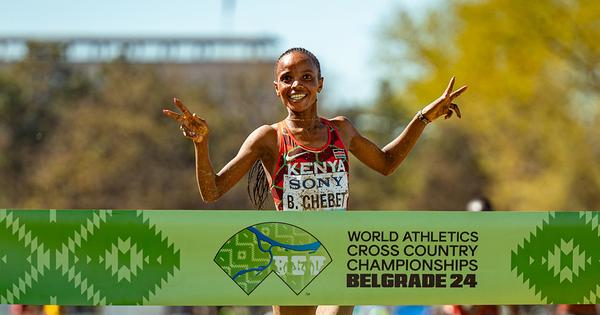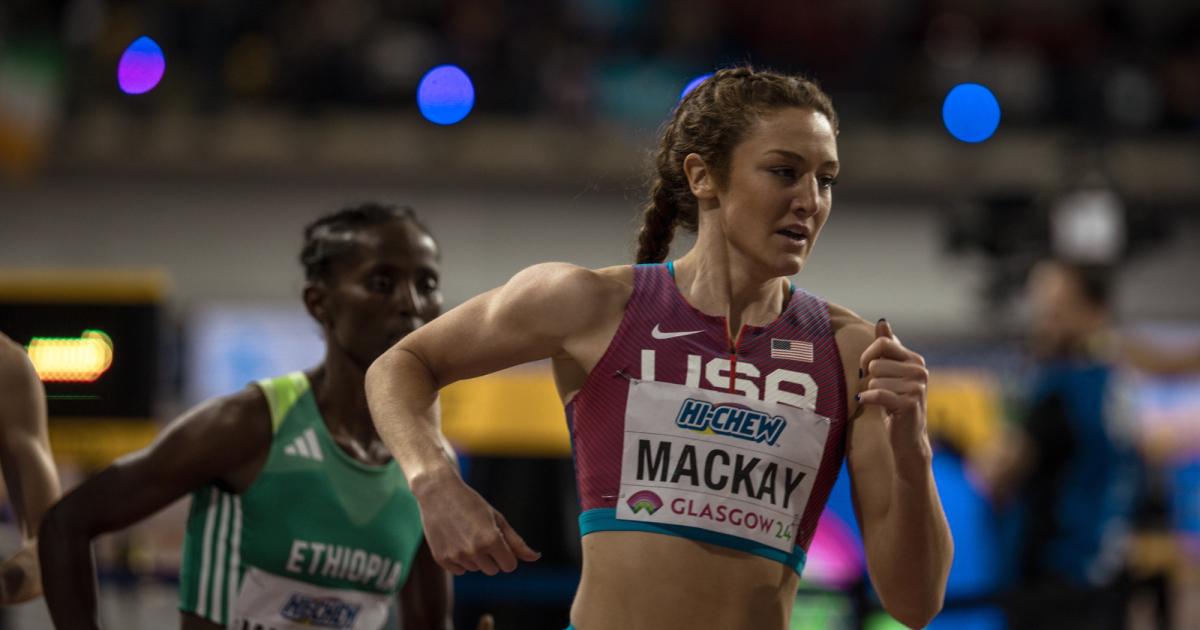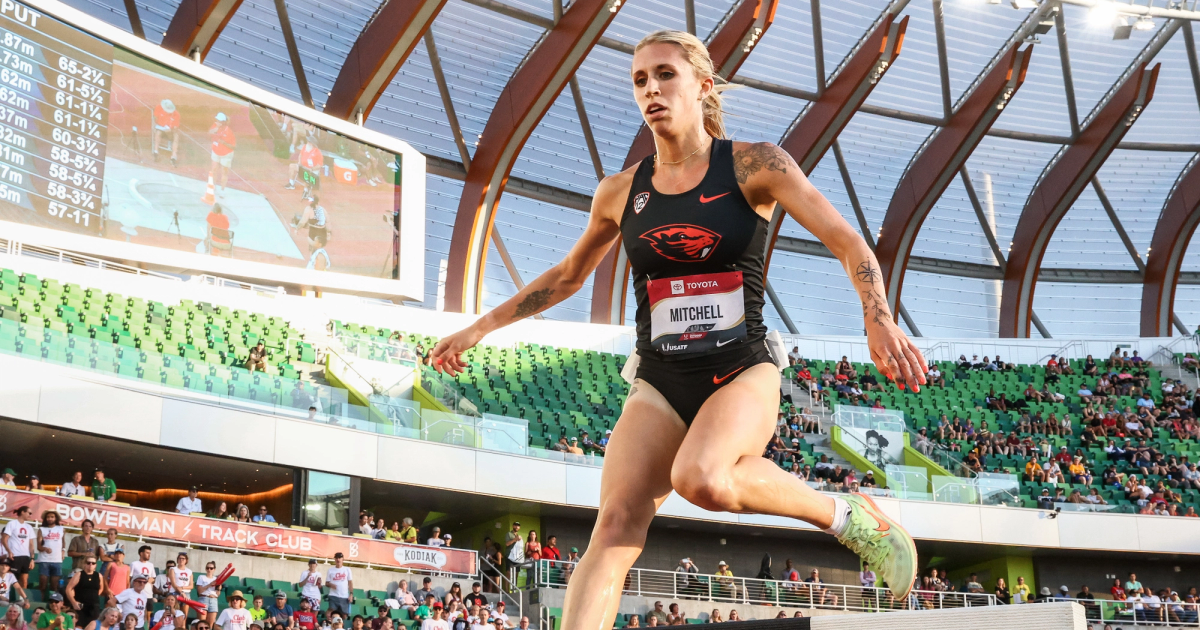By Kyle Merber
April 3, 2024
In 2018, Josh Hoey ran 1:47.67 to set the high school indoor national record. He turned pro rather than attend Oregon. Hoey ran a PB of 1:47.04 this indoor season but this weekend had a huge breakthrough to win the Florida Relays in 1:45.54. His brother Jaxson also ran a new best of 1:46.86. I hadn’t realized that the pair is now being coached by Justin Rinadli of Fast 8 Track Club and thought it was a good opportunity to catch up with the Australian coach about how some of his star pupils are progressing this Olympic year.
The result that sparked my interest in speaking with you was the big personal best of Josh Hoey this past weekend. He and his brother Jaxson have struggled to break through since high school and since you are always so transparent about your training, I guess a good place to start is: what have you done with the Hoey brothers this year?
I see a lot of myself in Josh, where when I was back running in the 90s, I overtrained and had the ability to push myself really hard, and not break down. But it was actually a detriment to my running because I was overtraining. So the main thing we are focused on with Josh is actually pulling him back.
He wants to do more, and sometimes you just need to do a little bit less. That's the main difference I've done this year compared with what he's done in the past. We also tend to focus on both ends. People think we are a speed based program because we do a speed workout every Monday, but we also focus on the strength on Saturday. As you know, coach Gags (Frank Gagliano) would say, “you put the speed and strength in a bowl and you mix it up and you should get a good 800 at the end of it.” I think just my version of speed is a little bit quicker than the traditional version.
The interesting challenge then, which is also the case with Will Sumner, is that they're not in front of you all the time as you are coaching them remotely. How does that setup work? I think most coaches would say it's difficult enough to hold an excited athlete back so how is it possible to do that from afar?
It's important to have good relationships with their support network that surrounds them. For the Hoeys, it's their dad and high school coach who are present for the training sessions.
And then for Will, it's his parents. You know Brad and Tosha, both athletes themselves who ran 1:46 and 2:00. There's lots of back and forth conversations with both the athletes and that support network.
Without a doubt, I'd love to be there. And we actually have a training camp in Albuquerque starting in May so we'll all be together as a group. Because like you said, having the coach there with eyes on the athletes is definitely where you get the most value from the coach, but without the relationship we have with the parents and the coaches that help it wouldn’t be possible.
So how is Will doing? Everyone was blown away by his race last year at NCAAs. And then indoors he was a little banged up so how's the progression now?
He was carrying an Achilles injury throughout last year during the NCAA season, but he was able to manage it. But it was continuing to flare up during November and December when we're trying to get good consistent training in, week after week. So we decided to skip the indoor season and he got a PRP injection into his Achilles just to help settle it down. And that actually involved three injections spaced out over a three week period. So he has an injection then has to have a down week, then he can go train for two weeks and then he has another one and he just had his third injection last Tuesday. It seems to be responding well so hopefully we can get it going outdoors by mid-April.
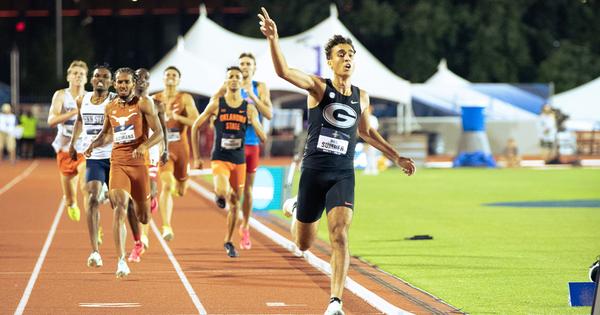
Jan Figueroa/@janfigueroa07
From your personal perspective, what's it like taking on someone of Will's stature who obviously has a ton of pressure on him just because of what he's already accomplished at a young age? And how do you approach that from a psychological perspective?
It's scary as a coach because you can't help but feel that [pressure] because the expectation on Will, after running 53-51 to go 1:44 at NCAAs, are that he can be a world beater. Though watching his career since high school I know what he's capable of and am confident in my abilities as a coach, and he's the sort of athlete to live up to those expectations. But I remind him that he's only 20 and we don't have to be the best in the world at 21 or 22. The real focus is to make the Olympic Games this year, but 2028 is the ultimate goal. If you want to be the Olympic champion in 2028, we've got to make sure we are progressing slowly over the next four years towards that goal.
Jumping around the roster next, you get to see Peter Bol regularly and his outdoor campaign has started. After last year – which we don't have to dive into again if you don’t want – there was an unbelievable amount of distractions. How is he doing physically now, but even more so emotionally with the weight of the world off his shoulders for this build up?
Last year was incredibly taxing, both physically and emotionally. He did incredibly well to bounce back and run 1:44 twice, but I think the real pressure came when he went to the World Champs, and we still hadn't mended that relationship between ourselves and our federation. And I think when you go into that team environment, it's pretty hard to hide from the people in power there.
That pressure got to him and it was almost a relief when he got out in the heats because I could just see the pressure just off of him from that point on. And we made a conscious decision on the one year anniversary of when we found out about that positive test, which ended up being a false positive, to put everything that happened in the last twelve months behind us and move on. You can't carry that weight on your shoulders and run two laps on the track really fast.
He's bounced back well this year. He had a little bit of a hamstring injury, probably pushing training a little bit too hard because he really wanted to beat Jake Wightman in the mile in Melbourne and sort of stretched things a little bit too much in training, but we pulled back now and he's back racing pretty well.
The 1:44s last year despite everything is impressive, but running that 3:34 kind of stands out! That's quite a good run for a guy who I think would best be described as a true 800 guy. What do you take out of that and his development on the strength side?
It takes a great athlete to run 3:34 – I think you'd agree with that, Kyle. Typically we're a low mileage program, running about 55km, which is just over 30 miles a week. But we do some big workouts, like 8 x 1000m or 5 x mile and he might do those in 4:45 on a dirt path. So while the overall mileage is low, those sessions help bring out his best form over 1500. And when he's running good 800s in 1:44 and still doing those longer workouts in Europe, going through in 1:58 is not that difficult. And if he's in connection with a lap to go he can sort of push through and run a good 1500. I think he could run about 3:32 if we did a few more of them, because we typically only do one a year.
Every time someone runs fast in an over-distance event, the collective thought is that they should move up. But just from a longevity standpoint, Peter is 30, do you think he can have a long career now since he has the ability to extend it?
A lot of people fall into that trap and I did the same thing too. I ran 3:40 when I was training for 800 and I thought that I might as well step up, and then went backwards from there. But we've always focused on long term development and taking off little chunks in the 800 each year. Look at a guy like Khadevis Robison and it's surprising he had such a long career, but he ran his PB of 1:43 when he was 30. So I look at the visual progression, and don’t focus too much on times. The focus should be on winning medals at major championships and being consistent, but I’d love for him to run a real fast 800 before his career finishes.
So speaking of major championships, obviously there was some disappointment in your camp dealing with the UK selection policy during the World Indoor Championships. For you as a coach, how do you manage that from the mental side? Guy Learmonth seemed to be coming on at the right time and yet didn’t have the opportunity to compete at a home championship.
It was really disappointing because last year, Guy and I decided that it would be his last indoor season because he's getting a little bit older, turning 32 this month. We wanted to focus on outdoors, but then it was announced that Glasgow was going to host so naturally – that's the track he has used all his life to train during the winter – we focused on that.
We found out he had Covid at the Trials and he lost that by one hundredth of a second. And I feel like had he won then he would have got the automatic selection. But when you don't do that or have the standard then you leave yourself to the discretion of the selectors. And unfortunately, we were on the wrong side of the selection policy this year
How tough is that to deal with as a coach? Because ultimately your job is to get these guys to run as quickly as possible. But then occasionally there are these things that are out of your control beyond training itself. Where do you see a coach fit into that?
I take on a lot of the blame when things don't go right.
It’s tough when an athlete gets sick, but there were things there we were doing in training leading up to a race a month before the trials where we targeted to run the standard. I think we got the training a little bit wrong, leading in that he was a bit flat and ran 1:46.8, but we were hoping for 1:46-low.
So I am open with the athletes and say, “well, I made a mistake.” I try not to put the full blame on them because at the end of the day, they’re doing what they’re told in training and if it doesn’t work that’s my fault, not theirs.
That's often a sign of a great coach is the ability to fall on that sword. But how do you do that without having them lose belief in you? Because if that happens too often, then it's like every time something goes wrong you are taking the blame for it. So how do you strike that balance?
I lean back on my track record of athletes running well at the right time of the year. Pete at the Olympics in 2021, ran a national record in the heats and then came in fourth in the final. Jeff Risley, who was another one of my athletes, was sort of out of his career and then four weeks before the Olympics ran 1:44.7, which was his fastest time in nine years and then went on to make an Olympic semi-final. In my training group, we might make a mistake here or there, but 99% of the time we run well when we need to.
The 800 has to be the hardest event to really peak properly for – not sure if you agree since you have it down better than me! With the balance of speed and strength that’s necessary, it's not as easy to just build a pyramid with a huge base and just periodize it out, backing off the last couple of weeks, right? It's a bit more nuanced. So what makes a good 800 runner peak at the right time? (I know it’s a loaded question!)
Yeah, it is. I spent a lot of time looking at how many races Marco Arop ran before he won the World Champs and what he did differently that year vs. 2021, when I thought he was in equally good shape. I tend to look back at that and then mirror it up with what I see my athletes doing. There was an old thought that you'd run your best 800 on your eighth one. I see a lot of athletes take at least four weeks off of racing before the major championship.
So most of the medalists have at least a three to four week gap between their last race and the World Champs. So what can we do in that last four weeks before the major championships to make sure we don't get those things wrong? I think that's where a lot of athletes either overcook it and push way too hard, or they continue racing and only have a two week rest and are cooked again.
Is that being done with too much distance or is it that they are running too hard? In an 800 meter program, you can always take a little extra time between reps and keep doing more if you keep cutting 100m off the ladder. So how’s the overcooking happening?
One of the benefits I have is because we focus on speed all year round, we're not trying to cram it in the month before a major championship thinking, “oh, damn – we've got to get really quick down the next four weeks!” So my guys are always confident in their ability to run fast and run close to their personal best 200 all year round. We just have to make sure we keep continuing to tick the boxes off. We reduce volume slightly and we don't do anything really hard ten days out from the heats.
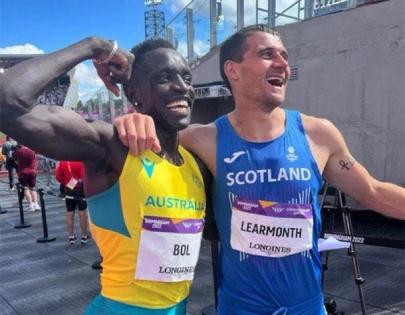
That touches on a misunderstanding many athletes have about middle distance peaking. They see it as this opportunity to cut mileage and focus on getting really fast. In reality, a good program is more about dialing in that specific endurance work and getting comfortable at that specific pace.
Yeah, exactly. We don't do a lot of those typical hard 800m workouts that I used to do as an athlete, like 5 x 300 with four minutes rest where I’d averaged 37. But my coach made me do that probably six or seven times in a season. My guys only really do four hard workouts in a period. Typically we do two during the Australian season and then another four during the European season. So it’s really only six for the whole year. Whereas back in my day I would have done six of those in three weeks.
800 guys also love ripping a really hard 600 and pretending that they're going to be able to find that last 200 come race day – that's the classic formula. Is there a workout that’s your go-to in the beginning of the season? It seems like you love the hills and threshold.
I think hills are underrated. We typically do hills in a base period before the Australian season and then go back to it before the European season. You can mirror a track session or track workout on the hills. If you did 10 x 200 with a jog back recovery, that's the same as doing 10 x 200 on the track in my book. We make sure they're not too steep, so the athletes aren’t running with ridiculous form. And then the tempo stuff we do year round. Before Pete ran that 1:44.0 in Paris a few years ago, he did 4 x mile seven days before.
That's probably a surprise for some people, that it’s such a constant throughout. Are you one to ever do post-race workouts? That's an opportunity to grab an extra few miles of threshold.
We've tried a few times. I remember watching you in 2018 after you raced that 1500 in Brisbane and you guys are doing a post-workout on the main track afterwards. And I remember thinking that I need to add this in, but I haven't done a lot of it. My guys don't do a lot of mileage. Sometimes I feel like people do those workouts to make up for stuff missed during the week and we just don't back off too much before races. That said, the Hoeys did do 16 x 1 minute with 30s rest after the race so I am trying it, but I'm not 100% certain just yet.
So I asked Mark Coogan this question and now I'll ask you. If you had to design a program for 800 meter runners year round, but you can only do three workouts. What would those three workouts be?
That’s easy. I would do a speed workout on Monday: 4 - 5x 50m + 4 x 120m w/ 80m walk plus sprint drills and hurdles. The next one would be 10 x 200 hills w/ jog back recovery, alternating one easy and one hard. And then on that Saturday we would do a threshold workout 4 x mile w/ 2 mins rest.
I reckon if you did that year round, you would probably run a pretty good 800.
Would you have to race yourself into shape a little bit?
I had Alex Rowe basically off that program run 1:45 and we did hills that Thursday before the Saturday race. You can still run fast off that.
No secret sauce.
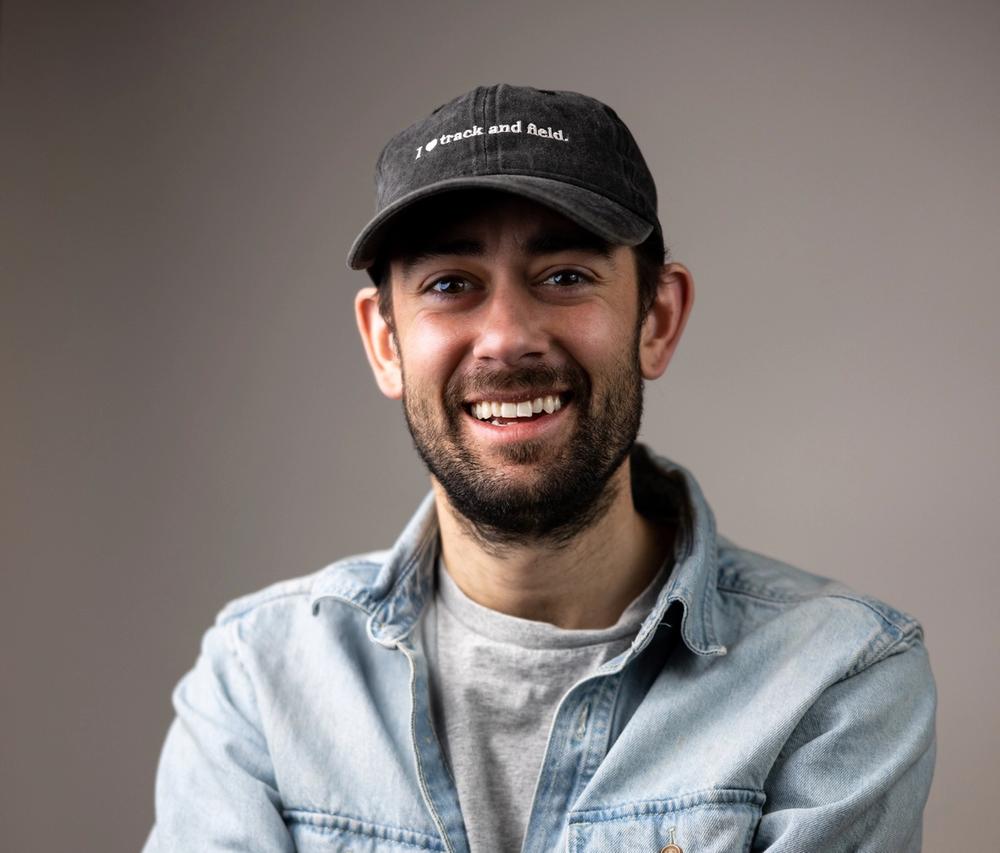
Kyle Merber
After hanging up his spikes – but never his running shoes – Kyle pivoted to the media side of things, where he shares his enthusiasm, insights, and experiences with subscribers of The Lap Count newsletter, as well as viewers of CITIUS MAG live shows.
